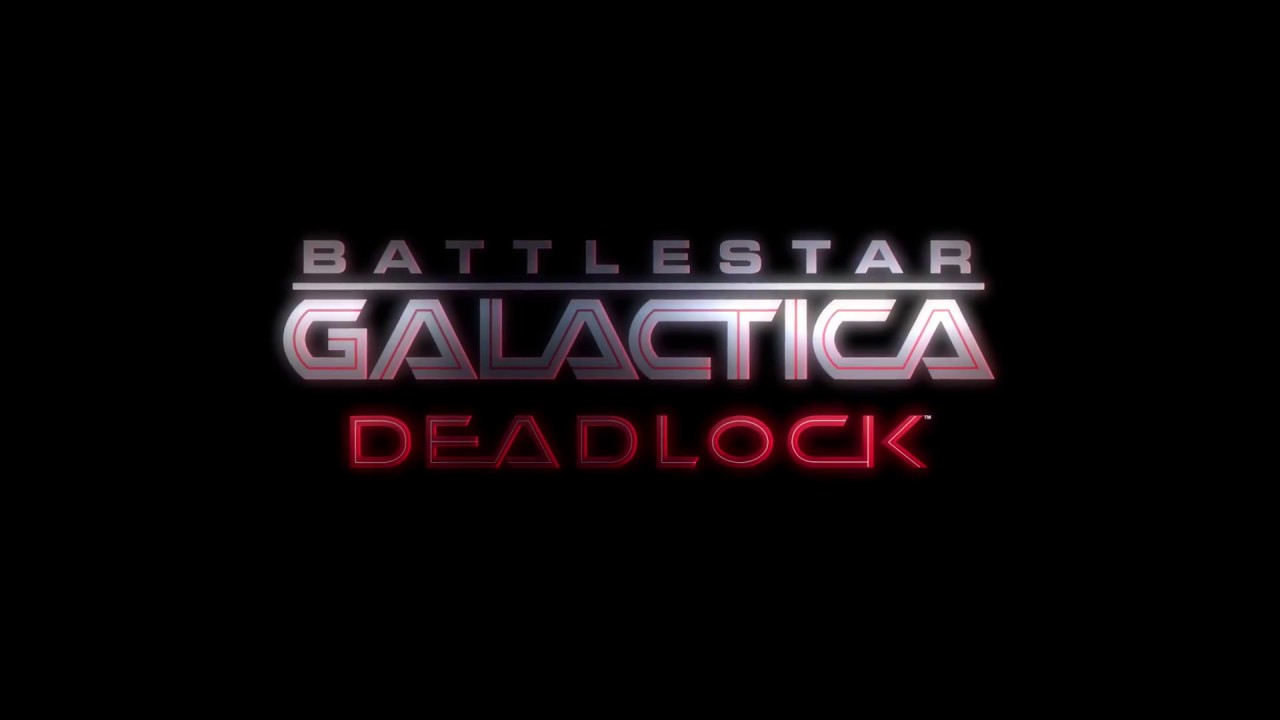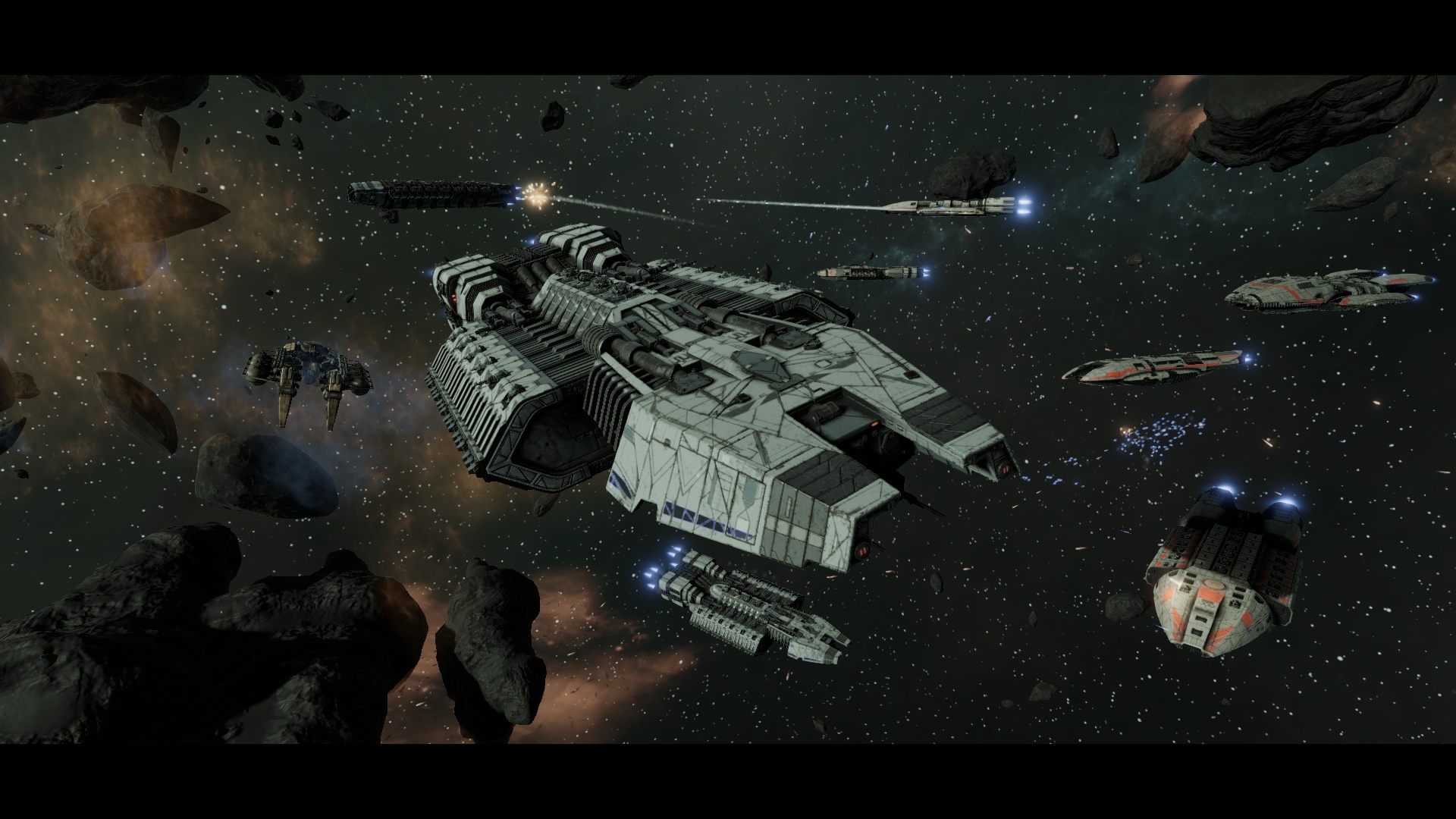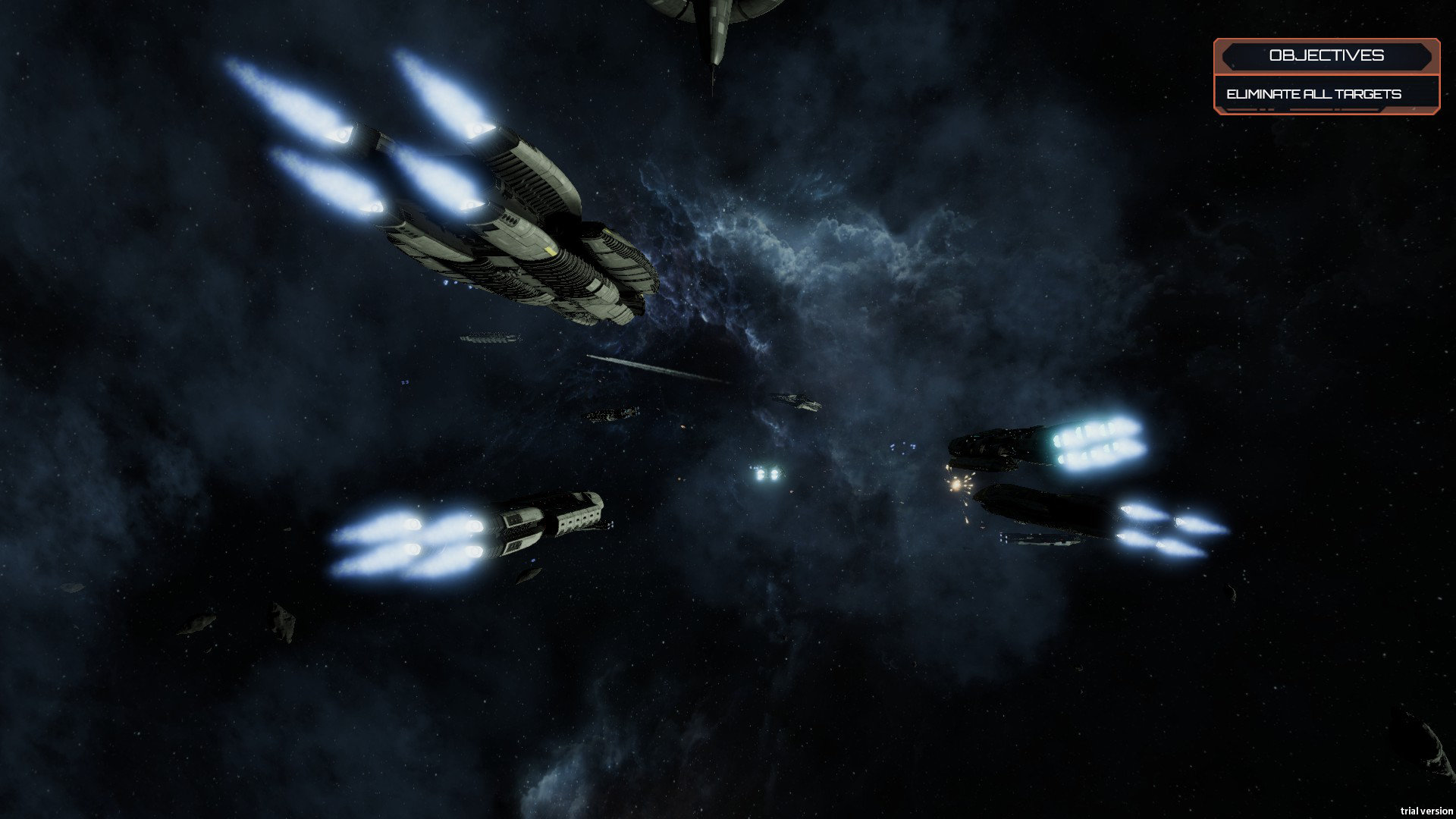Lords of Kobol be praised! I have been waiting for a good Battlestar Galactica game for literal years now. Diaspora was a step in the right direction –everything else, however, I’ve found wanting.
Developed by Black Lab Games, and published by Slitherine Ltd, Battlestar Galactica Deadlock, I admit it snuck up on me. Until recently I didn’t even hear whispers of a BSG video game in production, let alone this close to release. I haven’t played Black Lab’s previous title, so Deadlock was my first experience with them — and I must say, I am greatly impressed with their adaptation of my all-time favorite series.
The Twelve Colonies
Two thousand years ago, the human tribes left their ancestral home world of Kobol and from there founded the Twelve Colonies — Aerilon, Aquaria, Canceron, Caprica, Gemenon, Leonis, Libran, Picon, Sagittaron, Scorpia, Tauron,and Virgon. Each of the The Twelve Colonies has its own culture, dialects, climate, and even bias.
Not all of the colonies are equal, though. Caprica is considered to be the center of the Colonial Government, Picon is the seat of Colonial Fleet High Command, and Sagittaron is easily considered the poorest and least socially stable of the Colonies.
Cylons
Humanity had created the Cylons to serve them as workers and emotionless cybernetic soldiers. However, the Cylons were gifted far more intelligence than the Colonials had intended. They began to see their servitude to humanity as slavery, then rebelled against their former masters and the First Cylon war began. Four years later, the events of Battlestar Galactica Deadlock take place.
The Broken Deadlock
After four years of war, the Colonials have managed to counter every Cylon offensive to date — but it has been costly, and the death toll rises daily. This Deadlock was shattered when the Cylons launched a surprise attack on Colonial high command stationed above Picon. As the second-in-command to Admiral Lucinda Cain, the now acting commander for Colonial Fleet, you assume the role of XO aboard the Diadalos — the Colonial Fleets’ mobile shipyard.
Your primary mission is to defend the sovereignty of the Twelve Colonies, and prevent their destruction by hostile Cylon forces. Victory will not be achieved easily, or merely through the barrel of a gun.
Before the Articles of Colonization were signed, the Twelve Colonies were their own independent nations — and it was not uncommon for open fighting to occur. These are old, deeply nested feelings, and not all of the Colonies will agree to work together or admit that it’s even necessary. You’ll have to maintain unity between the Quorum of Twelve. If the Cylons manage to exert too much pressure on the Colonies, they may break from the Quorum and declare independence. Failure to keep at least six of the Colonies in the Quorum means utter defeat for humanity and an unsuccessful mission for you.
To complete you mission successfully, you will have to manage your resources, fleets and officers carefully. The Cylons do not sleep, they do not relent, and they will not be defeated without sacrifice. You will have to build up the Colonial Fleet, protect civilian lives, uphold the Articles, and prevent the destruction of humanity.
It is a burden, certainly, but one you will bear. You are a Colonial Officer, and you will lead your people through these trying times.
Layers Upon Layers of Gameplay Mechanics and Features
Strategic 3D Space Warfare
The majority of the gameplay in BSG Deadlock has you commanding your fleet in a 3D plane, where you then queue your fleet actions. Each individual ship and fighter squadron can be given a large series of orders. While you are decided what actions your fleet will take, time is at a stand-still — only resuming when you have ended your turn.
All ships take their actions simultaneously, which is where the strategy comes into place. All movement, all fire commands, everything — including the all of the actions of the Cylons — take place at the same time. Predicting the enemy, countering their movements, and placing your fleet in a superior firing position will be your key to victory. Learning the optimal firing angles, distances and agility of colonial fleet will also serve you well, and learning those same parameters with regard to your enemy will also allow you to face them on your terms.
The Daidalos is your command center and the primary means of expanding your fleet. Destruction of the Daidalos results in an instant mission/campaign failure, which will force you to reload your progress from a previous save. While not defenseless, the Daidalos is by no means capable of withstanding a determined assault — so you will have to make sure you protect it at all costs.
Early on in your campaign against the Cylons, the backbone of your fleet will largely consist of Manticore Corvettes and Adamant Frigates. Colonial Corvettes are excellent at recon, and pursuing damaged enemies while poking at them in their blind spots where they can not retaliate. Adamant Frigates however will form the early backbone of your line — brandishing plenty of mass drivers, they can deal an impressive amount of damage despite having a rather compact design. Additionally, Adamants carry a squadron of Vipers or Raptors.
The first “heavy” colonial vessel you are likely to acquire is the Artemis class Battlestar. It’s the lightest version of a Battlestar, but still quite durable. With booster missiles and two ranged squadrons, it provides a large sum of medium-range damage. There are certainly more colonial ships that you get to use, but I say self-discovery is often the most satisfying — so I won’t go into full detail on every ship.
The Basics of Space Warfare
Every vessel has a basic armor value for multiple angles, and a base hull value. Once the armor on a section of a ship has been reduced to zero, it will begin taking hull damage from incoming fire in the direction where armor is destroyed. At zero hull, a ship can no longer maintain its structure and integrity and thus is destroyed.
It’s a simple enough mechanic that’s easy to understand, but also further reinforced by every form of ship (excluding fighters) having subsystems. These subsystems can be damaged through physical damage, electronic warfare, or even through hostile Cylon boarding parties. Each subsystem helps maintain primary systems aboard the ship — such as Navigation and Engineering controlling the agility of a ship, or Fire Control determining the factors in your vessels primary weapons.
When subsystems are damaged, the functionality of your vessel begins to fail. Without Navigation you simply cannot control where your vessel is going until you repair the subsystem. If a Cylon boarding party overcomes your marine compliment aboard the vessel and takes control of the CIC (Combat Information Center), the vessel is lost.
Fleet Construction and Political Management
You won’t survive long against the Cylons if you don’t construct new ships. But don’t worry — Daidalos is a mobile shipyard, after all. Tylium is the primary currency used in BSG Deadlock, and you need it to force jump your fleets if you haven’t passed enough turns on the campaign map, simulating their FTL drive spooling up. You also need it to transport officers to new fleets, and you need it to construct warships.
Tylium is obtained through primary story missions and optional secondary missions that are entirely worth going out of you way to accomplish. It’s also gained per-turn from the colonies.
The second currency you will be handling is requisition points. Gained in the same fashion as Tylium, Req Points are used to buy new ship and armament blueprints, and to recruit and upgrade officers. Req points are just as important as Tylium, if not moreso. Even with infinite Tylium, without req points you couldn’t invent bigger, and better ships for Colonial Fleet. Balancing your budget can also be difficult, but rewarding when you do it right.
Managing the Colonies is also a task you’ll have to work at. Certain planets start concerned, or not fully convinced that combining arms with the other colonies is necessary. If the Cylons manage to shake up a Colony too much, they’ll break from the Quorum. This will lower your Tylium income and eventually you will lose the campaign if too many Colonies declare Independence.
If you have the Diadalos stationed above a colony, that colony will provide a variety of bonuses depending on the colony itself. These can be extremely useful, and are important to utilize.
What It Does Well
Battlestar Galactica Deadlock doesn’t have many features or mechanics that will revolutionize the gaming industry forever. However, this isn’t a bad thing at all — in fact, I see it as a good thing. Most features are well done, fleshed out, and pop in a way that makes other strategy games seem a little flat. Fleet combat is easier to learn than it looks, but has a large amount of depth to it. There’s a low enough skill floor that most can get into it and do well, but high enough of a ceiling so hardcore players can immerse themselves.
Fleet battles feel very good, and the graphical design of both Colonial and Cylon vessels is top notch. Weapons feel powerful, ships seem to have weight, and fleet tactics are handled well, with a certain uniqueness depending on the class of vessels you’re commanding. The ability to fine-tune your ship’s exact position, and even their focus on defense or offense allows for quite a lot of tactical depth.

Additionally, the effort Black Labs put into the lore is fantastic — from their own additions to previously entrenched topics. They truly worked hard on making Deadlock feel like it was in the Battlestar Galactica universe. I won’t spoil all of the fun, but I will say there were some enjoyable cameos made by certain characters, — such as everyone’s favorite smoking doctor (albeit a much younger one). In the homages of Helena Agathon and Lucinda Cain’s characters, you can really feel a lot of love for the source material.
Even a smaller, simpler part of the game is done well. The options for zoom speed, camera panning speed, rotational speed can all be modified, which makes a big difference in ease of use. Why this feature is still absent from so many games with huge scale, I have no idea.
The ambient music in Deadlock also captures the feeling of the series very well. Some pieces seem like they could have been composed by Bear McCreary himself. It’s a shame they couldn’t used the actual licensed music for the game, but I understand.
What Could Be Improved
Despite being quite enjoyable, every game has its flaws — and regardless of being a huge BSG fan, I can’t ignore what I disliked about the game.
In larger battles, the UI clutter can be quite intense. Seeing the ghost images of your future ship movements overlapping with each other can make things look a little ugly in close-ranged engagements.
Additionally, the default options for selecting a target to focus fire in larger battles are an issue as well. Generally it seems as if the closest target for the ship you’ve selected is the default zoom to focus when you go to give a focus target order. This doesn’t sound too bad — but when you need to give seven primary ships, and fourteen fighter squadrons their orders it gets a little obnoxious. They could easily fix this by having the default enemy zoom based on ship type, with fighters defaulting to other fighters, and capital ships defaulting to other capital ships. As it currently is, scrolling through or finding and clicking the target can become quite tedious.
Character art looks really well drawn, it fits with the art style, the uniforms look very detailed. However, generic default officers have a little issue:

What the Frak is that? Everything in BSG Deadlock looks good, generally speaking. Main characters are represented with drawn art, so why do generic officers look like basic models I made in Blender back in high school? There could’ve been a better compromise.
Politics could also have been done a little differently. Currently there isn’t a true diplomatic way to communicate with the Colonies. The way you improve their standing with the Quorum is to sit fleets above them or knock toasters out of their skies. Granted this makes sense, seeing as how you’re a military man, but I think additional mechanics could have worked out very well. Politics in Deadlock are by no means handled poorly, but more could have been done on that front — which was slightly disappointing.
My final and perhaps largest issue with BSG Deadlock is the slow build up and start to a new campaign. Always choosing to play on the standard difficulty for reviews, I selected Commander, which is the game’s equivalent of normal mode. The description is that Cylons will go toe-to-toe with Colonial ships, giving you an even challenge. This is 100% true, but that didn’t stop me from making a couple mistakes on my end — and being in a position I didn’t think I could recover from, I began a new campaign with the same difficulty.
I was back to using Manticores and Adamants again for the first seven or eight missions as I attempting to build back up. I then realized that after having already been well past this portion of the game, going back to the beginning didn’t feel as fun as before. So that definitely impacts replayability a little bit. However, that doesn’t mean it would be a bad game to replay — in fact, I think I’ll enjoy several runs of the game. It’s just that the early game might drag on a little longer than it should.
Verdict
Battlestar Galactica Deadlock does almost everything well. It’s hard to pinpoint every exact thing it accomplishes — it’s a very well-rounded game with its own minor issues. Fans of space strategy games will find themselves enjoying Deadlock, but fans of both strategy and Battlestar Galactica will find themselves immersed in a universe crafted for true fans of the series.
Battlestar Galactica Deadlock releases later this week on August 31. So man your stations, set condition one throughout the fleet, and slag those frakking chrome domes. Humanity will prevail. So Say We All!
[Note: Slither Ltd provided a copy of the game for the purposes of this review.]










Published: Aug 29, 2017 02:06 pm